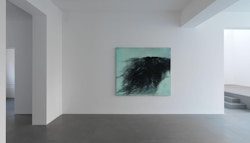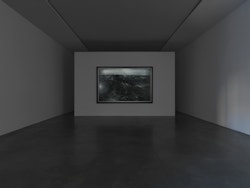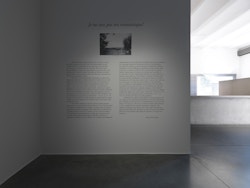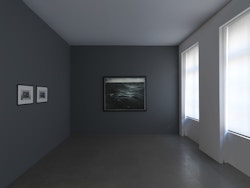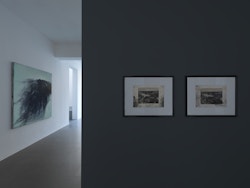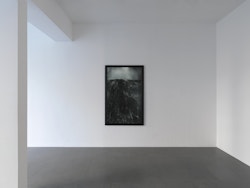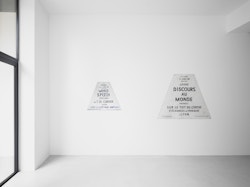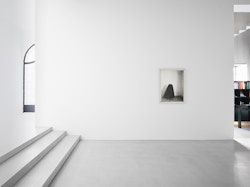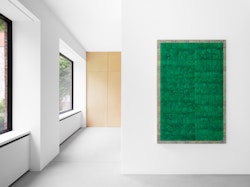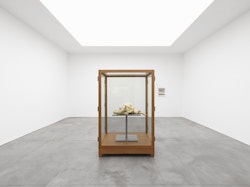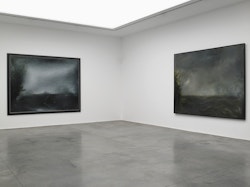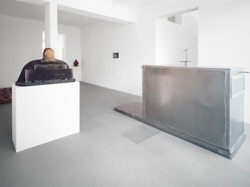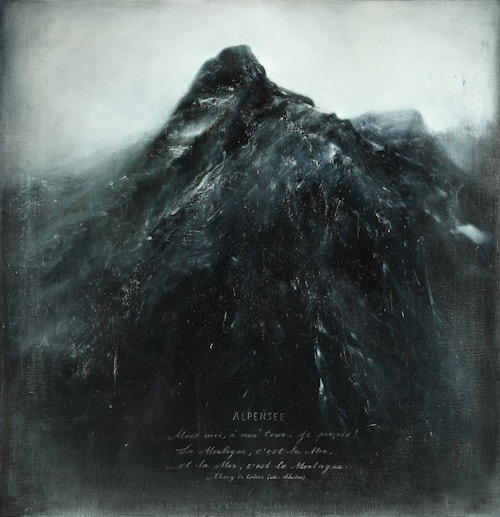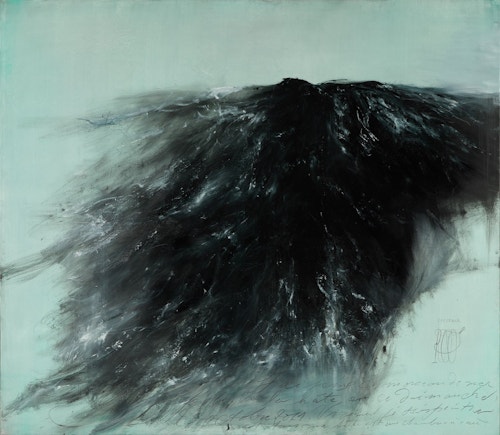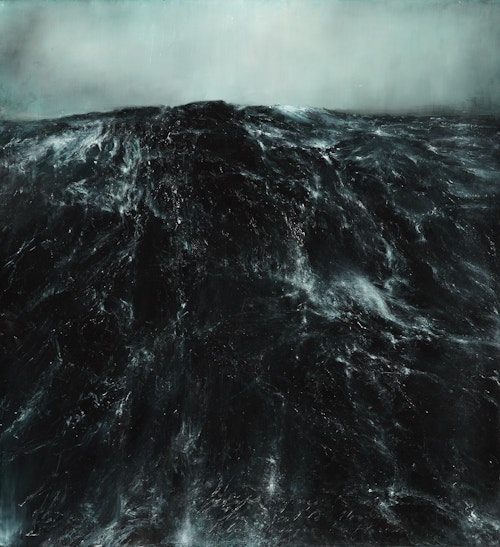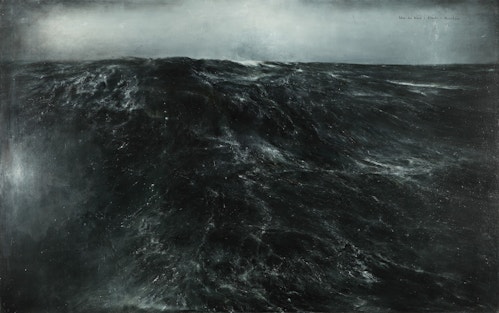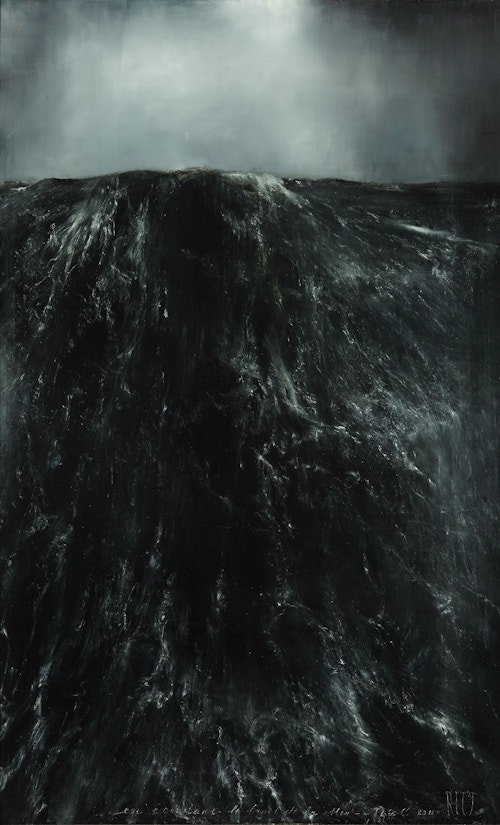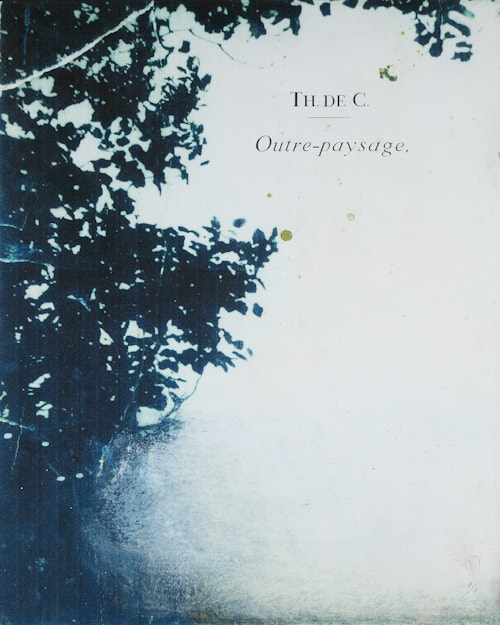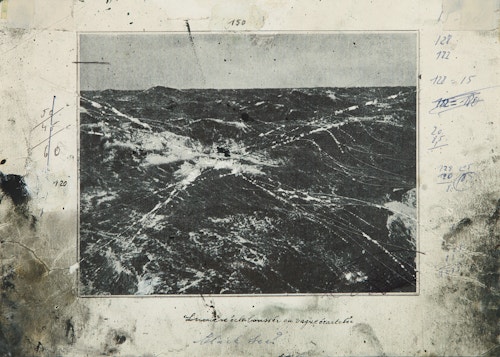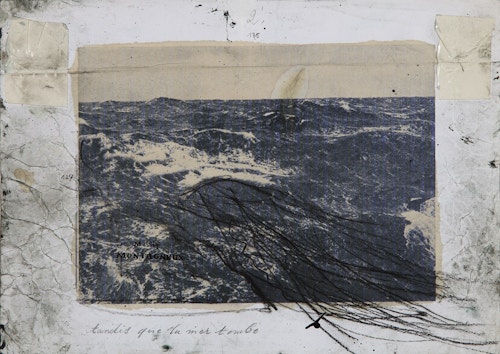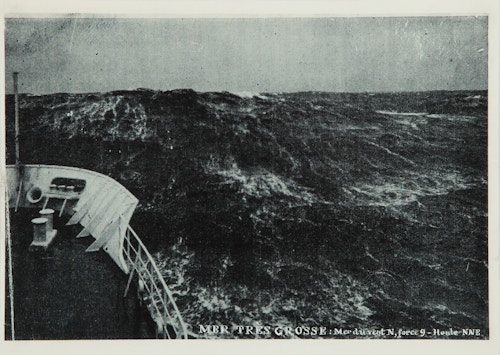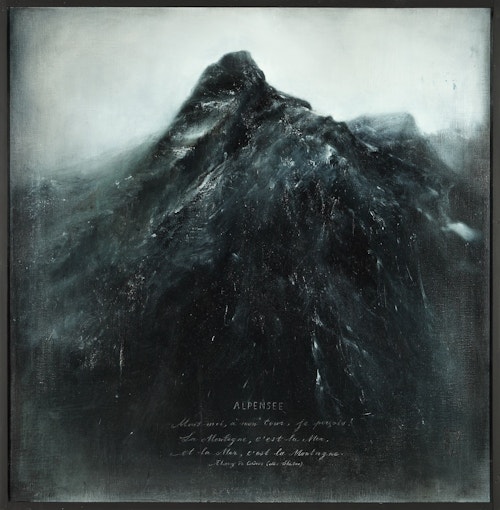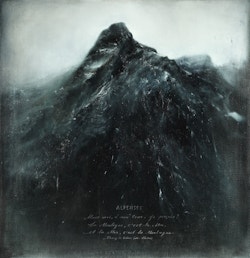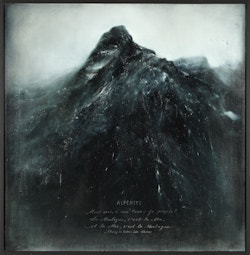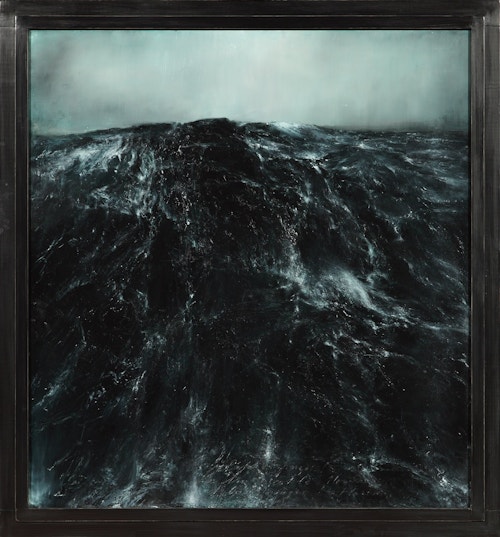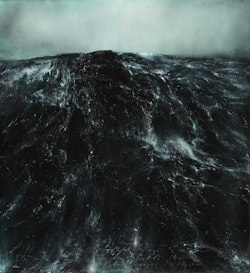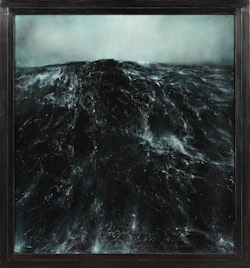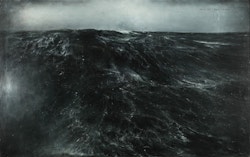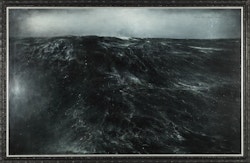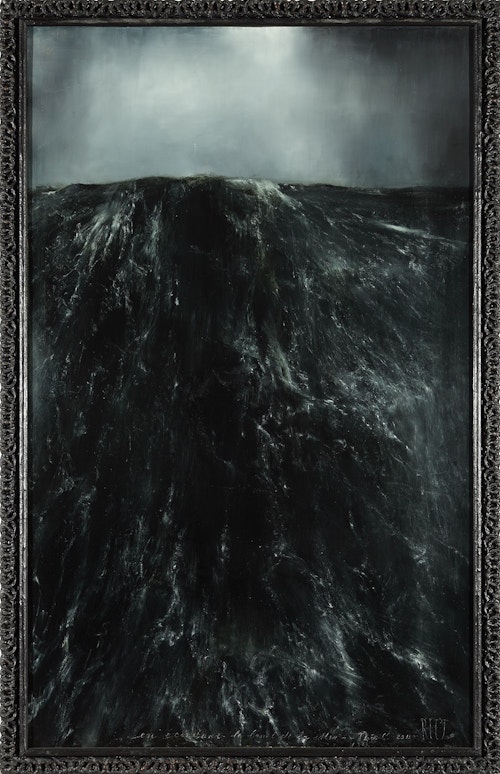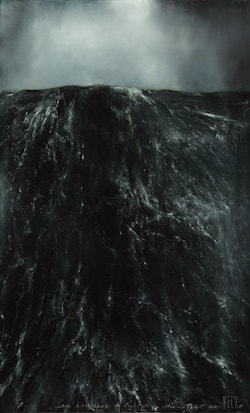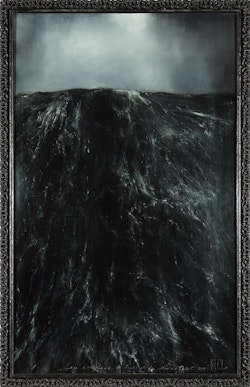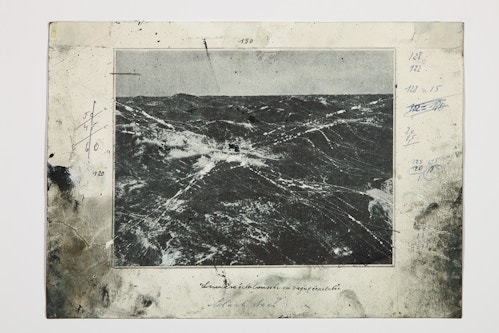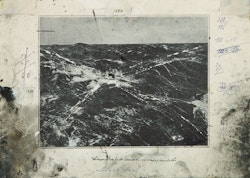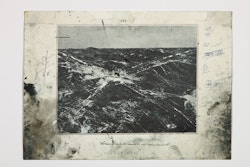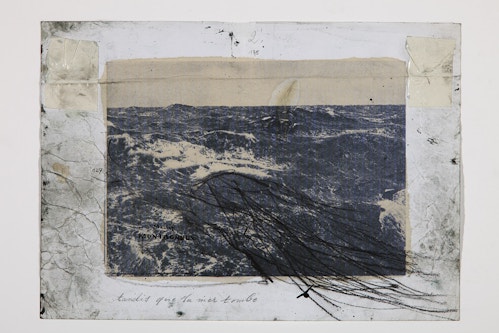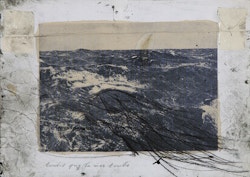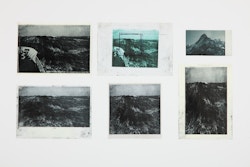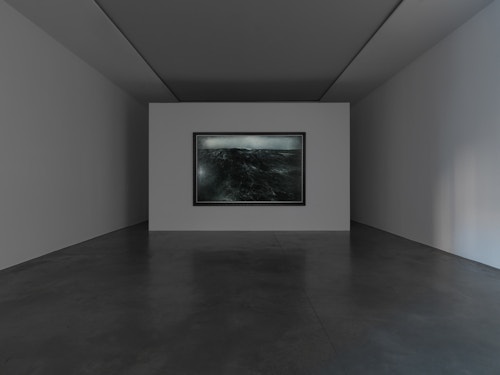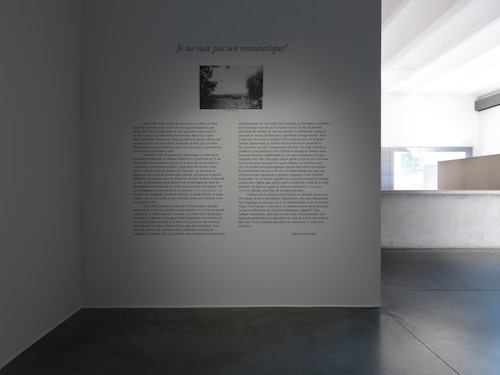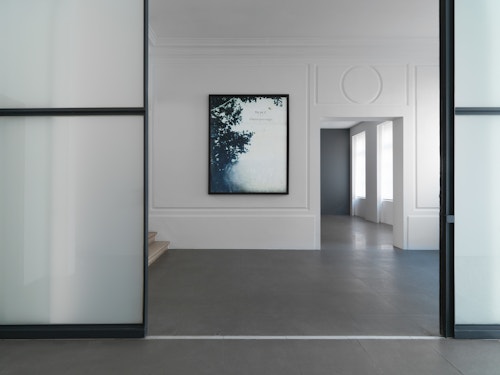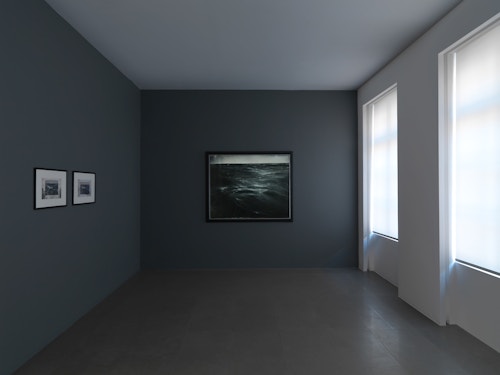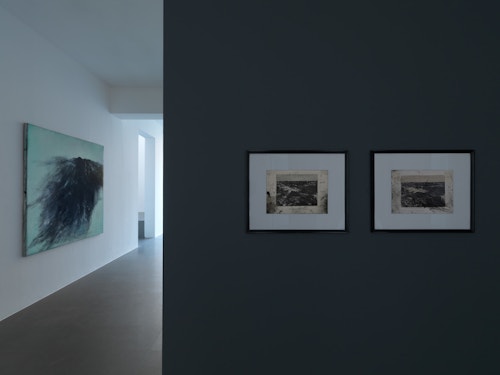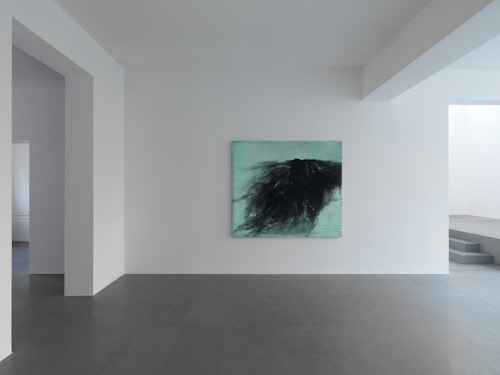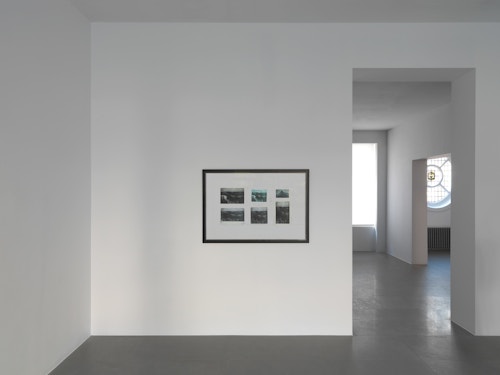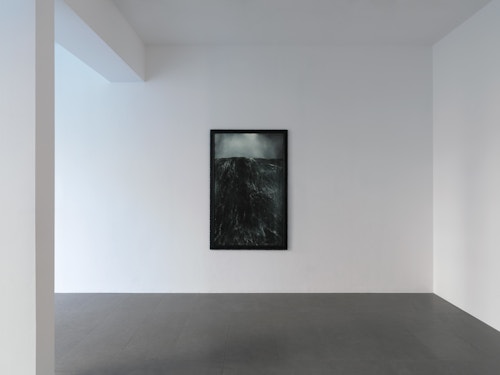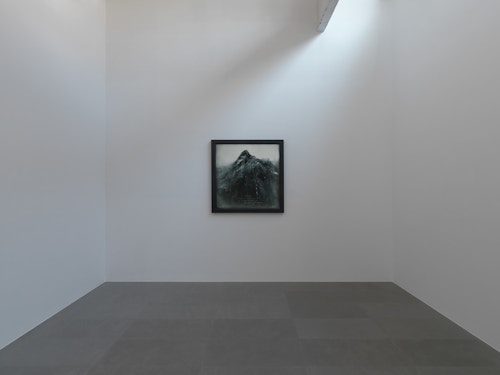
Thierry De Cordier
I’m Not a Romantic!
– August 1996. It’s hot. I’m painting under a tree at the bottom of the garden, taking as my subject a sweeping view of my village (as reproduced on an old postcard). The large canvas is finished in two days. But it looks too bucolic, like some over-the-top eulogy of nature; I’m not satisfied with it. And I’m bothered by so much greenery. I end up taking it into my studio where I prop it facing one of the walls. I lose sight of it for several months.

–December 1997. As I prepare to move house, I discover the picture I abandoned more than a year ago. It leaves me cold. Without anything precise in mind, I put it on an easel and start to daub it with paint; gesticulating with my hands and feet – “Do it like a farewell to Flanders.” I carry on with ever bolder brush strokes, especially in the lower part of the landscape, but I avoid touching the spotless white of the sky. A mass of lines and veins appears, with the main ones meeting in the middle forming something cross- shaped. Whereupon, with a broad smile, I exclaim: “Fucking Flanders!” It’s evening. They are calling for me. In a good mood, I leave the studio and sit down at the table. The family is there. I feel good. In a week we’ll have left.
–April 1998. After almost four months spent in the heart of France, I haven’t picked up a single brush. There’s too much work to do restoring the old house. This morning I’m filled with a powerful desire to paint. I undo the few canvases I’ve brought with me and stay looking at the large green and black landscape. I take it out and put it on some trestles. Then I look at it some more. Closely. In the end I reckon the painting isn’t good enough. It doesn’t have any soul. I decide to work on it some more. So I unpack my gear and arrange it carefully on a table. Without waiting, I start painting over the existing landscape. I work away at it. At the end of the day, not satisfied with the result, I go to bed. Next morning, I start work again, doing my utmost to reproduce the initial image. But what’s the point of going backwards? It doesn’t make any sense. And I leave the studio. That afternoon I go back to the canvas which is still wet, and focus on it. Longer this time. All of a sudden, feeling ready, I pick up a large brush and some cloths and attack the picture, just on a hunch. I get into the picture fast. In pure harmony with it. But without knowing what I’m really doing. After a quarter of an hour, I stop and take a look. The result is disastrous. In front of me there’s a sort of mish-mash of grey and green. A scrawl which, even if it still makes a vague reference to some countryside or other, still remains impossible to pigeonhole. But on closer inspection, and to my great surprise, the picture seems to hold up. Little by little, it even absorbs me. This is the real painting! I end up signing the canvas and call it Grande Soupe, 1996-1998. This time I decide not to do anything more to it.
Visibly, there’s nothing pleasing about a picture that works (otherwise it’s an image or something decorative). Workings, just workings. Not the landscape as such, nor its representation, but just the way it works. To my eyes this is the very essence of painting. Something different from the highly “suggestive” character of a romantic picture. Whatever the case may be, this view calls for a particular approach from the onlooker, and requires quite a lot of effort. Needless to say, it’s always easier to caricature what a painting is…
